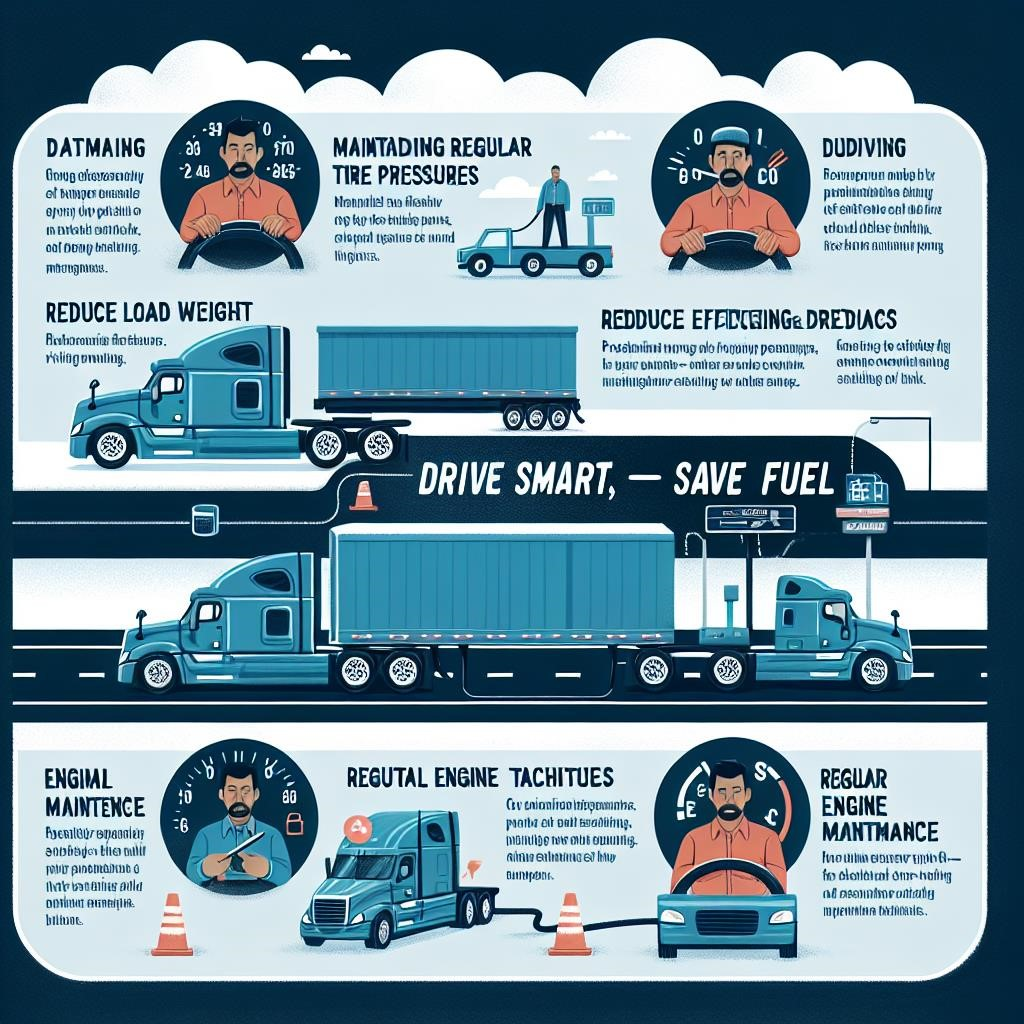In the trucking industry, fuel costs represent a significant portion of operating expenses. Therefore, improving fuel efficiency is crucial not only for reducing costs but also for minimizing environmental impact. Here are some effective tips to enhance fuel efficiency in trucking.
1. Regular Vehicle Maintenance
Keeping your truck in top-notch condition is essential for optimal fuel efficiency. Regular maintenance includes:
- Oil Changes: Change the oil as recommended by the manufacturer to ensure the engine runs smoothly.
- Air Filters: Replace air filters regularly to maintain proper airflow to the engine.
- Tire Maintenance: Check tire pressure frequently; under-inflated tires can significantly increase fuel consumption.
- Brake Checks: Ensure brakes are functioning correctly to prevent unnecessary drag on the vehicle.
2. Optimize Driving Habits
The way a driver operates the vehicle can have a major impact on fuel efficiency. Consider the following driving tips:
- Avoid Rapid Acceleration: Gradually accelerate to maintain momentum and reduce fuel consumption.
- Maintain Steady Speed: Use cruise control on highways to avoid speed fluctuations.
- Reduce Idling: Turn off the engine during long stops to save fuel.
- Plan Routes: Use GPS technology to find the most efficient routes that avoid heavy traffic.
3. Load Management
Efficient load management can significantly influence fuel efficiency. Here’s how to manage your loads:
- Maximize Payload: Ensure you are carrying the maximum allowable weight without exceeding limits to improve efficiency.
- Distribute Weight Evenly: Properly distribute weight in the trailer to enhance vehicle stability and fuel efficiency.
- Minimize Empty Miles: Plan backhauls to reduce the number of empty trips, which waste fuel.
4. Use Aerodynamic Accessories
Adding aerodynamic accessories to your truck can reduce wind resistance and improve fuel efficiency. Consider the following:
- Trailer Skirts: These can lower drag by smoothing out airflow underneath the trailer.
- Air Deflectors: Install deflectors to direct air over the cab and reduce turbulence.
- Wheel Covers: Use wheel covers to decrease drag around the wheels.
5. Embrace Technology
Modern technology can help in monitoring and improving fuel efficiency:
- Telematics: Utilize telematics systems to track fuel usage, driving behaviors, and vehicle performance.
- Fuel Management Software: Implement software that helps analyze fuel consumption and identify areas for improvement.
- Driver Training Programs: Invest in training programs that focus on fuel-efficient driving techniques.
Improving fuel efficiency in trucking is achievable through a combination of vehicle maintenance, smart driving habits, efficient load management, aerodynamic enhancements, and the use of advanced technology. By implementing these tips, trucking companies can reduce fuel costs, enhance their bottom line, and contribute to a more sustainable future.
By focusing on these strategies, fleet managers and drivers can make a significant impact on their fuel consumption, leading to better profitability and reduced environmental impact.

Comment here